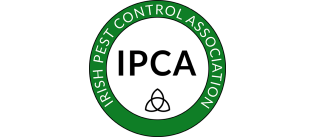Question: “What pests do you treat?”
Answer: We treat a large range of pest including but not limited to: rats, mice, pigeons, cockroaches, silverfish, bed bugs, ants, wasps, moths, fleas.
Question: “Why are rodents such a problem?”
Answer: Rodents pose a threat to the health of both humans and animals. They may cause significant damage to commodities, especially stored food and animal feeds, and to the fabric of buildings and infrastructure, such as electrical cables, drains and sewers. In particular, rodents pose a risk to food safety and food hygiene because they are attracted to areas where food is stored, prepared and sold and because many food-borne pathogens are carried by rodents and transmitted to humans, companion animals (pets) and to farm livestock.
Question: “Is pest control just about using pesticides to eliminate the problem?”
Answer: No. Comserv believes that it is important to review approaches to rodent control holistically and to integrate a range of control measures into the treatment strategy. All available control options should be considered – not just the use of rodenticides – including simple measures such as clearing away rubbish and the proofing of buildings. Relying on rodenticides alone does not guarantee that the infestation will always be eradicated, and numbers may quickly recover after treatment. It is important that, following the application of measures to reduce rodent numbers, consideration be given to ways of improving environmental management at the site. This should provide effective long-term control of rodent infestations. It is important to concentrate particularly on improving hygiene and proofing, as well as maintenance and repair of buildings.
Question: “Why don’t I do it myself using pesticides?”
Answer: Store-bought pesticides do not do much against pests. The truly powerful solutions are available only for the industry experts. The fact is, when you use the store solution, all you do is increase the resistance of the pest against the said pesticide. It will then become more difficult to eradicate an infestation than, say if you called the experts right from the start.
Question: “How do I avoid rodent infestation?”
Answer: In short, remove food, shelter and water. Remove water sources, such as fixing leaking taps/pipes; Seal all foodstuffs internally and clean down worktops and cupboards. Externally do not leave pet food or refuse exposed. Keep all openings (doors) closed fully and check externally for any gaps such as cracks, broken fascia or openings around pipes to allow rodents entry. Externally check for track runs and ness, ensure hedging is cut back and well maintained.
Question: “Why am I finding rodent dropping under my sink?”
Answer: Mice can crawl through a gap as small as ¼ inch. Take a look around the sink area including externally for gaps. Pipes may need to be sealed around (using steel wool) to avoid mice gaining access between the pipe and wall. Clean out any food waste under your sink, remove dropping and deep clean the area.
Question: “How can I check for presence of pests on my property?”
Answer: Look for tell-tale signs, such as dropping, chewed/gnawed materials, small tracks & tail trails in dusty areas and scratching/squeaking noises there’s a strong possibility you have unwelcomed visitors.
Question: “Can you treat a pest control issue if there are children/pet on the property?”.
Answer: It is important to have a professional pest control technician to eradicate an issue on a property where there may be children/pets in the vicinity. As there are various different types of treatment for various pests it is important to speak to your pest control technician on the necessary precautions before, during and after any treatment.
Question: “Can pests trigger asthma symptoms?”
Answer: Individuals who are bitten by bed bugs can experience blisters, hives, redness, swelling, and intense itching. Sometimes these allergens associated with bed bugs can become airborne — triggering asthma attacks.
Question: “Why do I see tiny bite marks on my body when I wake up?”
Answer: The said marks are a sign of a bed bug infestation. Be sure to check for other signs and call for a pest inspection as soon as possible.
Question: “Can bed bugs be successfully treated?”
Answer: Yes, using an insecticide that is only licensed to professional users, products such as pyrethrins and pyrethroids like Cyfluthrin and Deltamethrin, are the most common insecticides used to remove bed bugs from homes.
Question: “Are bed bugs just in beds?”
Answer: Bed bugs can take up residence in many places besides just a bed, such as the cracks and crevices in walls or wood. They also like to hide behind baseboards, around mattress buttons, within bedding, inside box springs in couches, chairs, rugs, in outlets and even inside electronics. This is why so many do-it-yourself treatments end up being frustrating and ineffective.
Question: “Can rats get into my property?”
Answer: Rodents need shelter, food and water to thrive. If they can gain access to a property that provides all three, they will try to enter. Keep cupboards and work tops clean, keep food sealed and keep access to property closed. Take a look around the exterior of your property for gaps where there may be a possibility for entry.
Question: “I clean my property regularly, but I still get pests. Why?”
Answer: Pests need food, water and shelter. If there are any openings such as doors, windows, gaps between piping and walls, gaps in facia etc they will enter. Exposed/unsealed foods will attract pests, along with pet food being left out. There is also the likelihood of ‘hitchikers’. Bugs can come into properties by hitchhiking and start breeding.
Question: “Do pests carry disease?”
Answer: All rodents can carry bacteria and viruses that cause infections in people. For example, Weil’s disease, salmonella and listeria can be spread through brown rats.
Question: “How many treatments are needed to eliminate the pest issue?”
Answer: This really depends on the issue and how severe it is.
Question: “How do I know I have a pest issue?”
Answer: Every pest infestation leaves behind some sign of the pest’s presence. Look for signs such as: Droppings, gnaw marks on materials, grease marks and tracks, bad smells, scratching and/or squeaking noises, damage to structure, nests. Outside the property have a look around for trails/runs, nests and cracks and holes in walls.
Question: “There are noises in my roof void. Does that mean I have rats?”
Answer: Not necessarily. Loft spaces are ideal environments for rodents and wildlife such as bats and birds. It is, however, important to investigate quickly as nests and dropping can become breeding grounds for insects. The other cause of concern is the damage to cables by gnawing. Check the space for any dropping or damage caused.
Question: “What damage can rat’s cause?”
Answer: Because rat teeth are very hard, very sharp and their jaw muscle arrangement can put quite a bit of pressure behind them, this gnawing can do some serious damage. Structural damage to drywall and timber, chewing through electrical appliances, wiring, insulation and gas pipes. Rats live in sewers and drains which are obviously extremely filthy and bacteria-laden environments and therefore carry disease that can be detrimental to humans and Infect food supplies.
If you did not find the answer you are looking for in the above FAQs please contact one of our specialist team members to give you their expert response.






